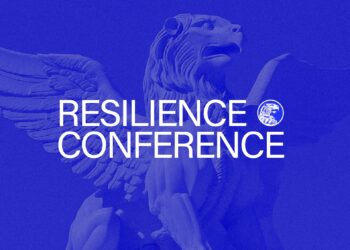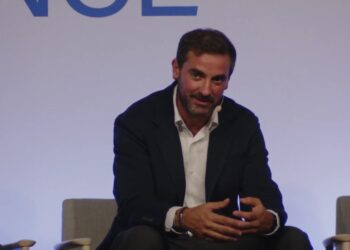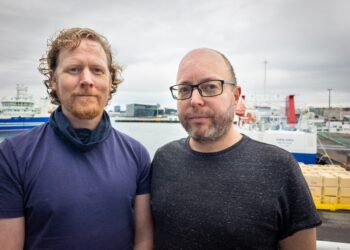Delian Alliance Industries is a Greek defense startup founded by engineers with big-tech backgrounds.
“I spent six years with Apple, one of our key software engineers was seven years with Facebook,” said CEO Dimitrios Kottas. The team formed in 2021 in response to shifting security risks in Europe. Their first customers are the Greek Ministry of Climate Crisis and the Hellenic Army.
We spoke to Kottas on stage at the Resilience Conference in London this year. He told us that his product focus is integration.
“The main solution we provide is connecting any of their sensors, either legacy radars, cameras on drones, legacy cameras, in one single software brain,” he said.
Around that software, the company builds supporting hardware, including surveillance towers, portable comms boxes, and edge computers. The goal is to deliver an end to end system rather than a single component.
Why Greece? Cost, access, and speed.
“It was simpler for us to start there,” Kottas said. “I don’t believe there is a lot of value in providing specific components. You unlock the value when you provide an end to end solution, where you become a full system integrator. To do that, it’s very expensive in the US.”
He added that Greece was a proving ground and that his ambitions were definitely outsized.
“We picked a small European and NATO nation where we could figure out building a defense company. We’re building a prime,” he said.
They’re well on their way. The company has raised $22 million to date. A fifth of the team are British citizens, and much of the software is now written in the UK.
Kottas was blunt about the state of the art in defence tech and he didn’t mince words on stage.
“There are middle powers or large powers right now that build lethal robots. They call them drones, but effectively they are lethal robots. The genie is out of the bottle.” He argued for a measured approach. “It’s wrong to promise full autonomy for weapon systems,” he said.
The company’s position is human in the loop.
“The viable path right now is to start with level three systems and gradually walk our way up to level four systems while maintaining the human in the loop.” He pointed to lessons from self driving. “The automotive industry and the whole tech industry have spent more than 15 years trying to build level five systems. They still have not managed to do that at large scale.”
On mission and urgency, Kottas described the wake up call that led him to leave Silicon Valley.
“I was watching footage of small units getting wiped out by drones as if someone plays a video game. I lost my sleep on that, as a roboticist. I decided to act.” He views the coming years as a broad technical rebuild. “We are sitting in front of a giant infrastructure project, the revamp of air defenses. Many nations have relied on the axiom that they can maintain air superiority. That is being questioned.”
On Europe’s edge, he sees urgency and focus. “For many of those member states, preparing for a potential near peer conflict is not sci fi,” he said. That reality shapes teams and timelines. It also raises the bar for capital and procurement. Europe has early stage money, but few funds that will write large checks for deep tech. Procurement still favors incumbents in many countries. “That made sense during peacetime. I don’t think it’s going to make sense going forward.”
The takeaway is simple: Delian wants to grow from a small market proof into a prime that delivers an integrated sensor to decision stack. Human in the loop stays. Scope creep on autonomy does not.
“Educating governments and policymakers on what is feasible with autonomy and what is not is part of the job,” Kottas said.








